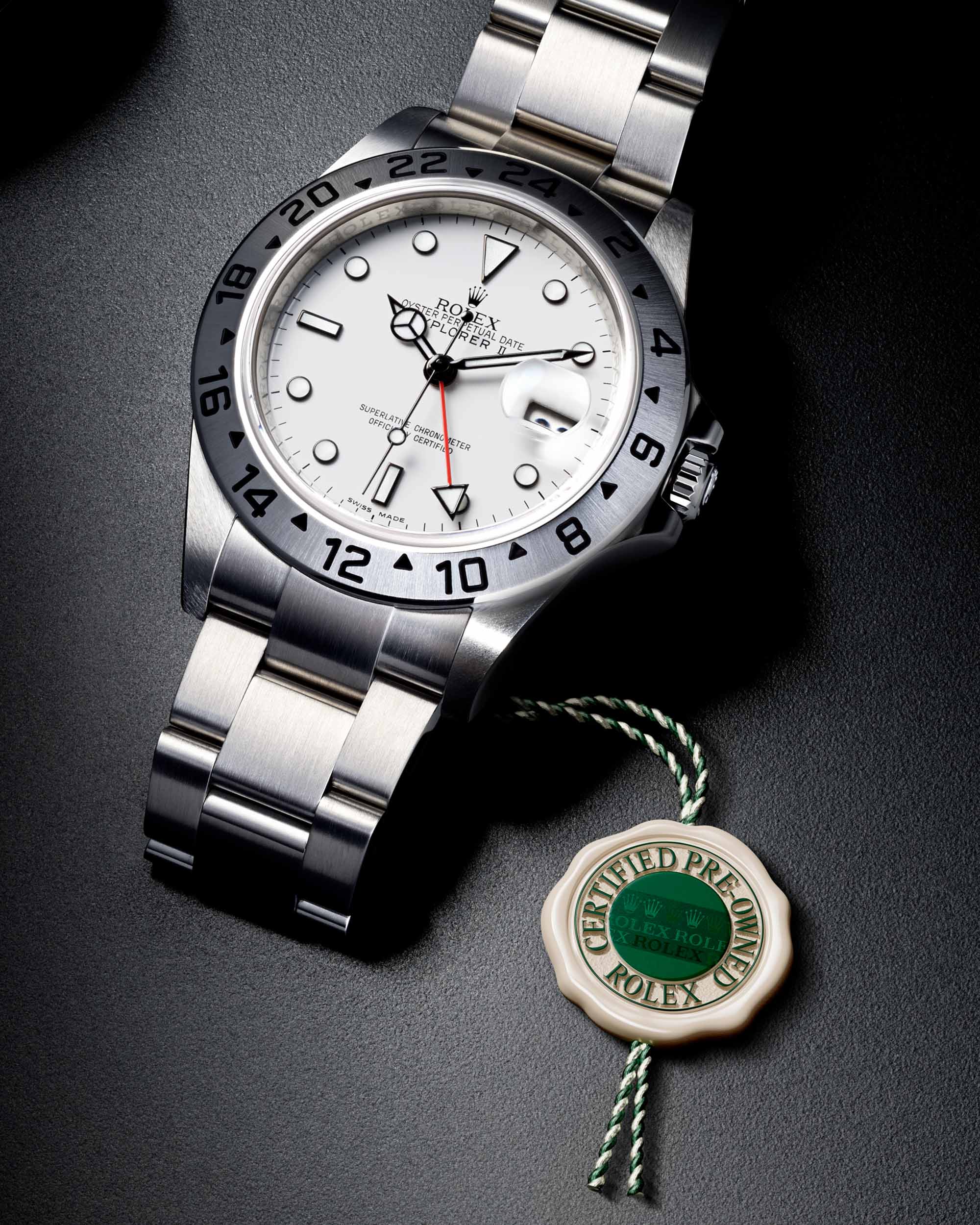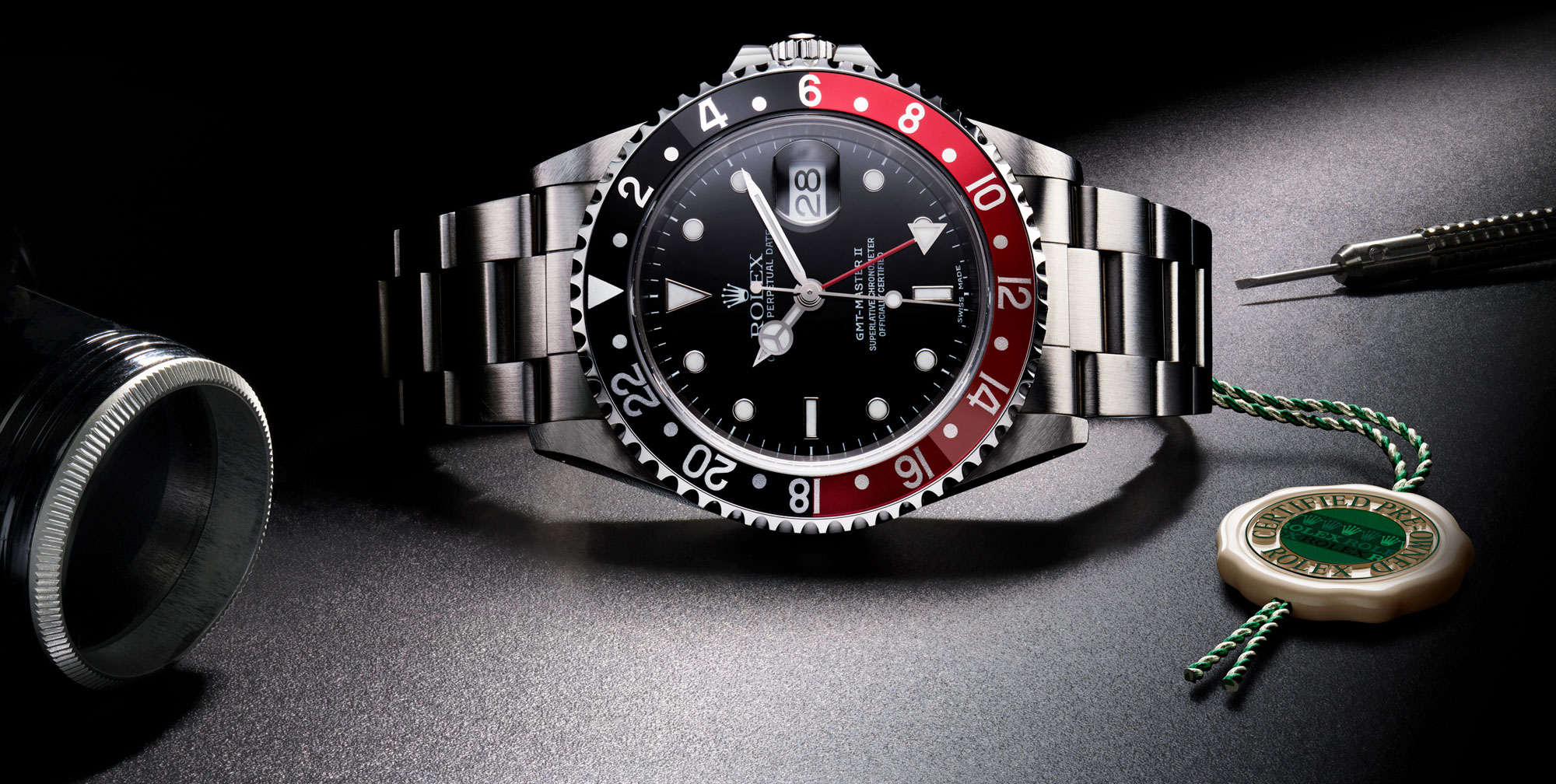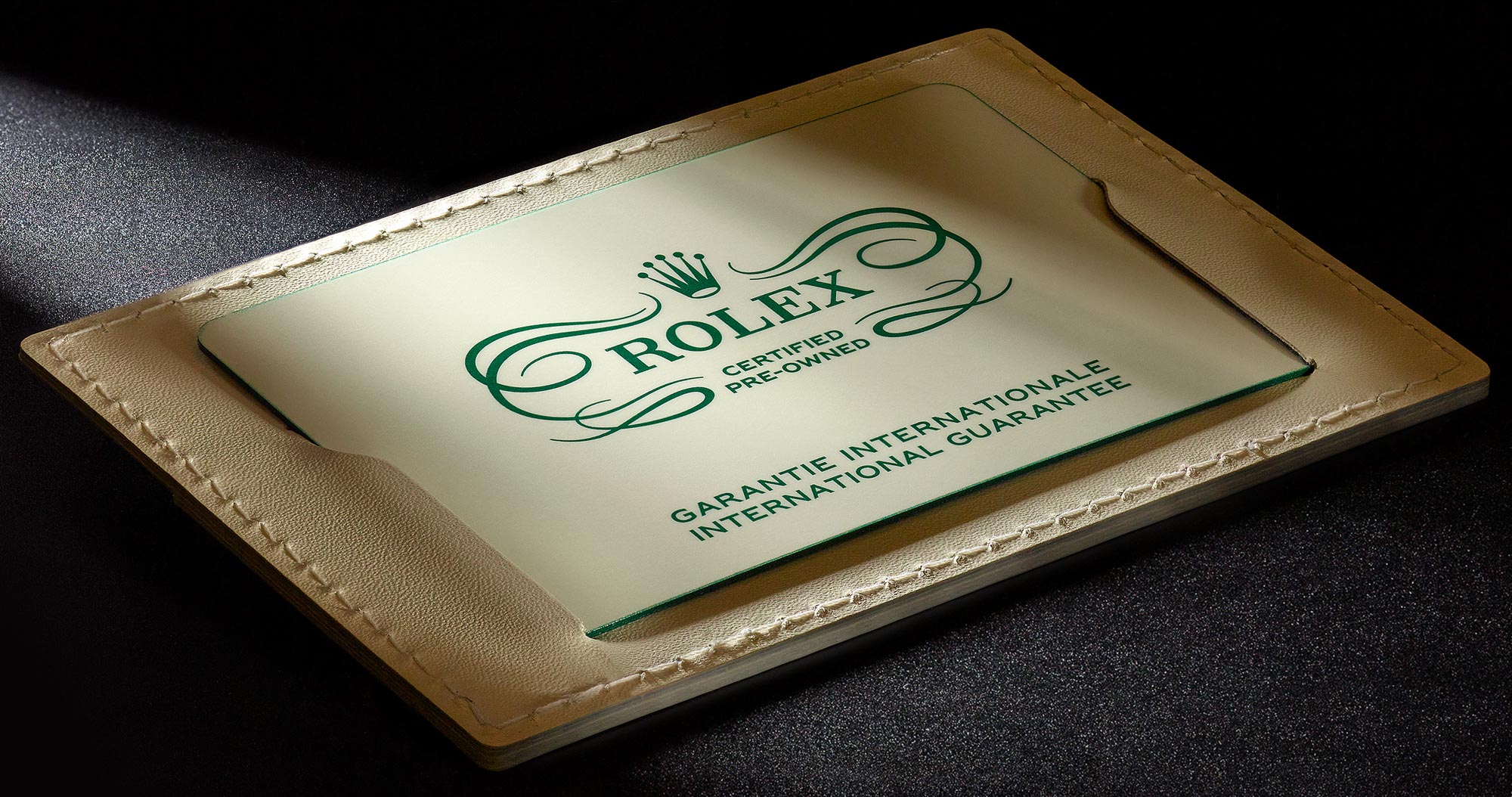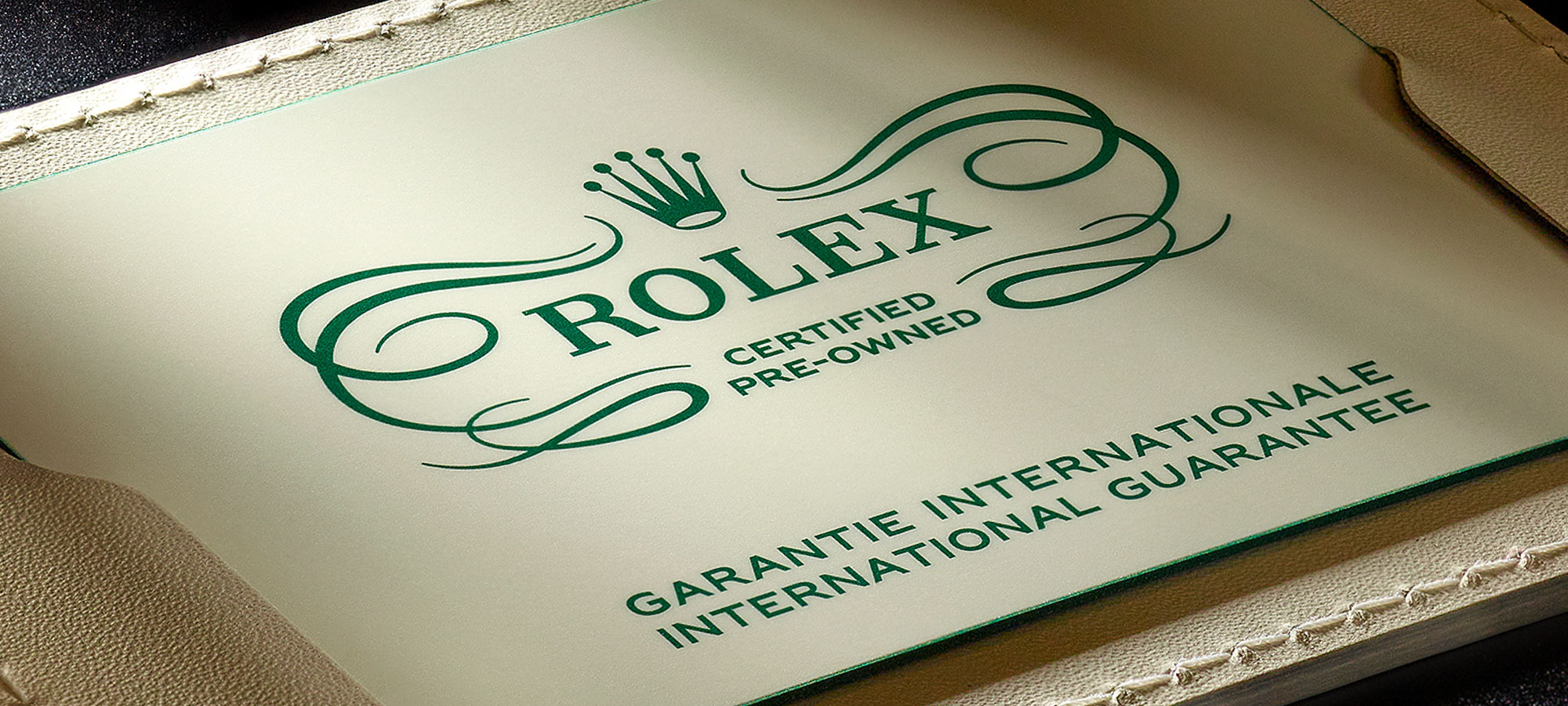
In 2022, Rolex made a somewhat shocking announcement (although ultimately quite practical from its perspective): Buyers would be able to purchase used Rolex watches with the added benefit of a Rolex warranty and assurance of quality. They called the program Rolex Certified Pre-Owned (Rolex CPO), and it was slowly rolled out to various Rolex authorized dealers around the world. Indeed, you can only purchase a Rolex CPO watch where new Rolex watches are authorized to be sold. When Rolex originally announced the Rolex CPO program, there were a number of unanswered questions ranging from what Rolex watches would be available under the program to who actually certifies them, and how much a Rolex CPO watch might cost versus one that did not have the fancy hanging white Rolex CPO hang tag.

Starting before the pandemic but accelerating during it, Rolex demand outpaced supply, and people began paying a premium for used Rolex watches. This was part of a larger trend that resulted in the creation and failure of numerous used watch platforms and the acquisition thereof (many brands also launched their own CPO programs during this time). In the case of Rolex watches, dealers who wanted to benefit from the increased demand complained to Rolex that there was money to be made and that they wanted Rolex to increase production. The downside to increasing supply is flooding the market with too many goods and eroding the exclusivity and prestige of owning and buying a Rolex.
Unlike those misguided used watch businesses that ultimately failed or have had a tumultuous trajectory, Rolex has a longer-term vision and knows better than to temporarily increase the production of watches to satisfy a temporary bubble in demand. Rolex’s authorized dealers also became jealous of independent third-party dealers and traders who sold pre-owned Rolex watches and didn’t have any rules applied to how they do business (Rolex authorized dealers work within very strict conduct agreements). Thus, Rolex made the decision to begin a program that allows its authorized dealers to do more business in the form of selling certified pre-owned Rolex watches.

Rolex doesn’t supply the watches, nor does it certify those watches, in many instances. Rather, Rolex authorized dealers who have in-house watchmakers complete a certification training that allows them to certify a pre-owned watch for the program. Rolex dealers are more or less able to come up with the pricing they want, but given their own cost to certify each used Rolex as a certified pre-owned Rolex, Rolex CPO watches naturally cost more than non-certified pre-owned watches. Rolex intentionally launched its CPO program slowly, with just a few retailers to start. Today, it is estimated that only around 80 Rolex authorized dealers worldwide are eligible to sell Rolex Certified Pre-Owned timepieces. From the start, it was clear that these stores were pricing Rolex CPO models high — that was to be expected. But how high? That’s the interesting question.

The analysis of used watch prices and industry-related market performance is still in its nascency, especially for a company like WatchCharts which is only a few years old, but has recently put out a report in collaboration with Morgan Stanley on the secondary watch market. The good news is that a lot of data on used watch prices can be scraped from the internet (though that data usually includes more list prices than sold prices). Using machine-assisted automation, analysts have increasingly powerful tools to get larger sets of relatively precise data. Again, these are evolving tools and no system can track all relevant data, but the current results are interesting.

In late 2024, much of the uncertainty around the Rolex CPO program has been resolved, particularly thanks to the reporting done by WatchCharts: We generally know how much Rolex CPO watches cost over non-Rolex-certified used Rolex timepieces. I say “generally” because I have been reading such reports for a number of years and have learned what we can and cannot glean based on available data. Not all watch industry performance reports have reliable data because accessing accurate relevant data is challenging. I say this as a caution to novices who get ahold of any of these reports: They should not be wholly relied upon. With that in mind, I must advise that used watch prices and price trends in the watch market, overall, are a moving target. The data referenced in the most recent WatchCharts report goes up to the third quarter of 2024. A year or six months from now the picture might be different or similar — we really don’t know.

It’s also important to understand and discuss the overall performance of Rolex watches in late 2024, as, of course, the price of new Rolex watches has a direct impact on the price of used Rolex watches. A few years ago, a number of used watches were being sold at a premium because of high demand. That trend has gradually decreased as supply has increased and demand for new luxury watches has cooled. According to WatchCharts, used watches from only three brands consistently sell for a premium over retail: Rolex, Patek Philippe, and Audemars Piguet. In my opinion, this will be decreasingly true in the coming years, and even as it is, that only includes certain models. All other brands have had prices return to more normal, stable levels. So, while Rolex watches still command a premium over market value, that’s less true than it was a few years ago, and its prices seem to be headed in a downward direction.

According to WatchCharts, as of the end of Q3 2024, the average used Rolex watches can trade for around 20% above retail price. This is an average that includes a few models that have increased in demand, along with a greater number of models that have decreased in demand. An interesting side note is that one of the strongest performing models is a Rolex watch that was once very easy to get, the Rolex Datejust. The Datejust is the only Rolex watch model tracked by WatchCharts whose value retention (the average amount over retail for which it can be sold) has increased in that last year, jumping 1.4%. Even hit models like the Submariner and the Daytona are down 4.5% and 19.4%, respectively, compared to a year ago.
To understand the price of Rolex CPO watches versus run-of-the-mill used Rolex watches, WatchCharts compared the listed price of Rolex CPO watches online with the pricing from a non-CPO dealer. WatchCharts discloses that much of the data is actually taken from just four Rolex CPO retailers: Bucherer (now owned by Rolex), Tourneau (now owned by Rolex by way of Bucherer), Watches of Switzerland (US and UK), and The 1916 Company (formerly Govberg/WatchBox). That should indicate that a closer analysis of prices for Rolex CPO watches not published online could reveal a different outcome. WatchCharts even admits that their analysis of the listings for Rolex CPO watches as part of their recent report “still only represents around 1% of the total value of Rolex inventory [CPO or otherwise] on the secondary market and that the CPO market remains relatively independent from the rest of the pre-owned Rolex market due to its price premium and consumer fragmentation.”

What is interesting to me is to see how prices have changed since more Rolex dealers have entered the CPO program, and as the larger timepiece market has stabilized. WatchCharts concludes that “Rolex CPO retailers continue to charge significant premiums from CPO inventory.” Weighing the average price premium for a certified pre-owned Rolex versus a traditional pre-owned at the Rolex authorized dealers who have online listings, WatchCharts suggests that on average, a Rolex CPO costs from 15% to 46% more than a non-certified used Rolex. Across the market, the average price premium for a Rolex CPO watch is about 33% more than what you’d probably pay for the same watch without the CPO hang tag, whether it was from a CPO dealer or not (or directly from the previous owner). The highest was Watches of Switzerland, who between their important UK and US markets charged an average premium of 44% over non-CPO Rolexes; the lowest was The 1916 Company at 15%. Of course, these numbers vary based on factors such as condition, regionality, model popularity, and current market activity.

As the used watch market stabilizes and returns to normal — including for Rolex, Patek Philippe, and Audemars Piguet — it seems that Rolex CPO dealers are at least in part leaning on their certified pre-owned inventories to offset revenue decreases. The average premium of 33% for a Rolex CPO watch does not, in my opinion, seem sustainable. Even with used cars, the average premium for a CPO is just 1.8%. My belief is that these dealers will need to eventually contend with market realities and that the majority of even Rolex CPO watches will be priced below the original retail price. As of 2024, that is how it is with most wristwatches on the market, meaning that used pieces are always valued below that of new pieces.
What may ultimately force Rolex CPO prices down is the high cost of holding on to inventory. It isn’t exactly known how many used Rolex watches are being collectively held by Rolex’s authorized dealers or the particular ones that WatchCharts examined for their latest report. That is because not all of the used watches available are listed online. What is known, is that hundreds of millions of dollars worth of used Rolex watches are sitting waiting to be sold to someone. Eventually, the cost of that stagnant inventory will force retailers to decrease their prices. In my opinion, it is only a matter of time. As much as I love Rolex, I wouldn’t say that right now is the great time to buy unless you’ve “received the call” from an authorized dealer who you know has something in stock they are willing to sell you at retail price. People who have been on waiting lists for years are starting to get calls more often, and signs indicate that the availability of many new Rolex watch models is increasing. That will in turn have a downward effect on used and Rolex CPO prices, even if Rolex remains among the few watch brands able to command lucrative price premiums for their luxury products. You may visit WatchCharts to learn more.

